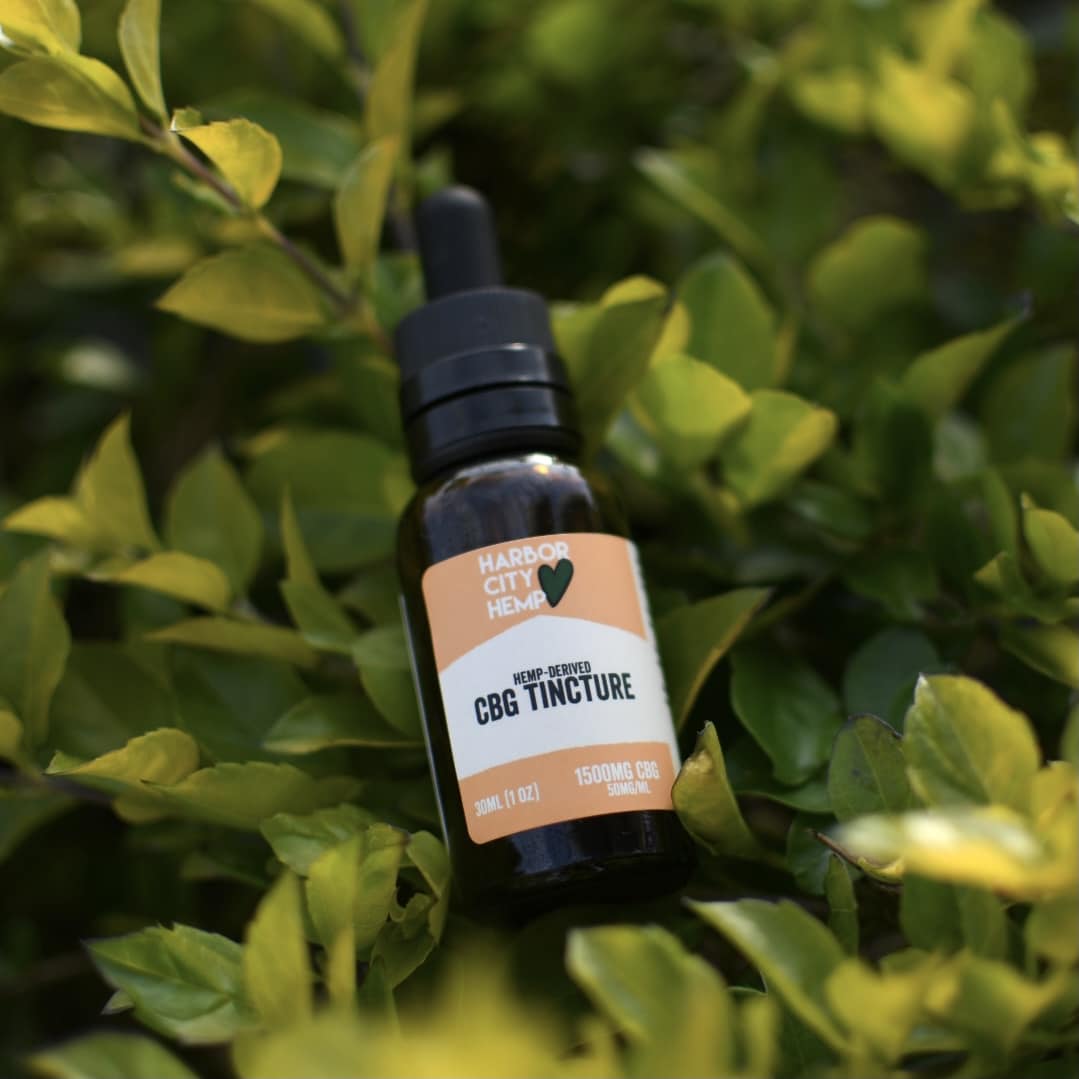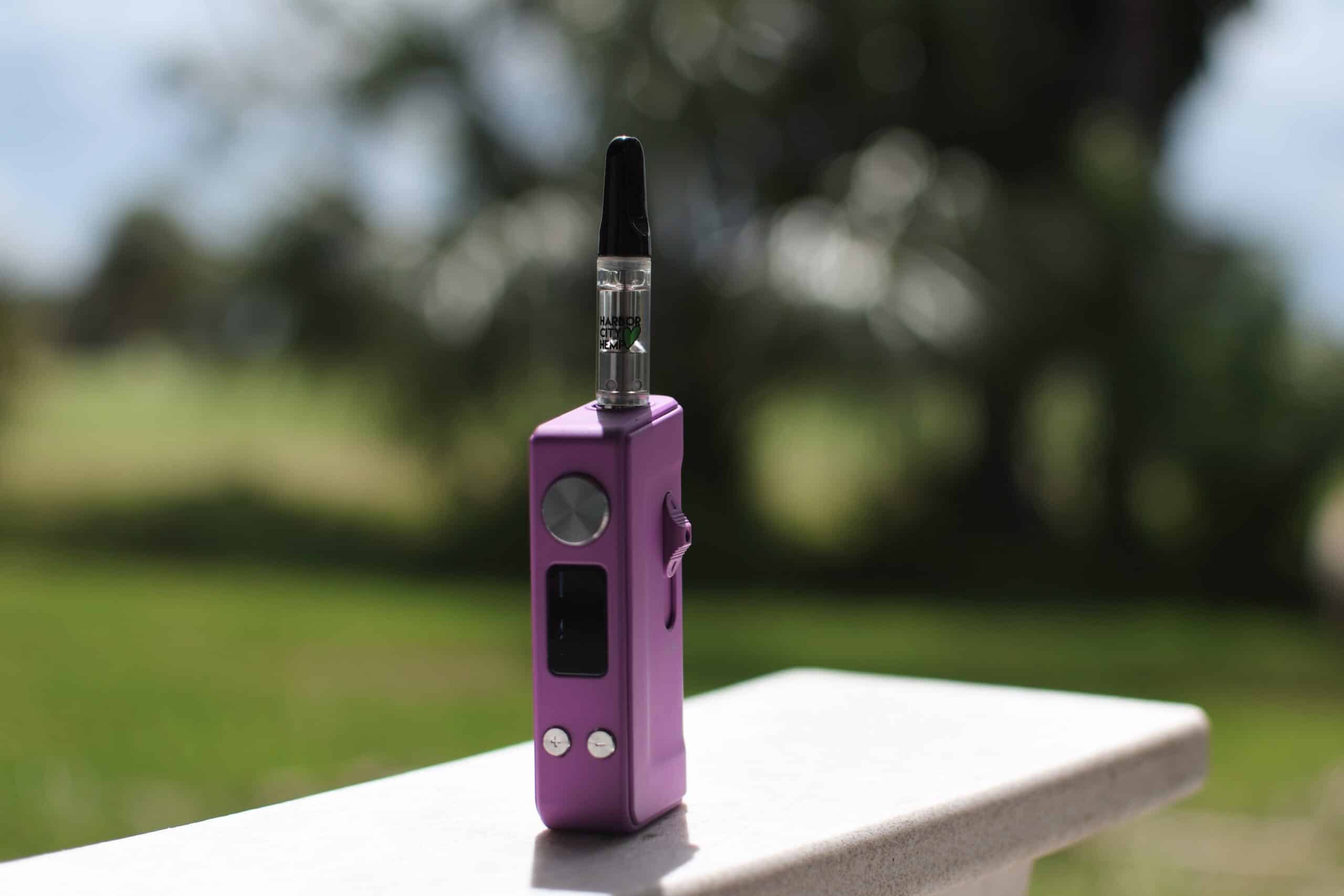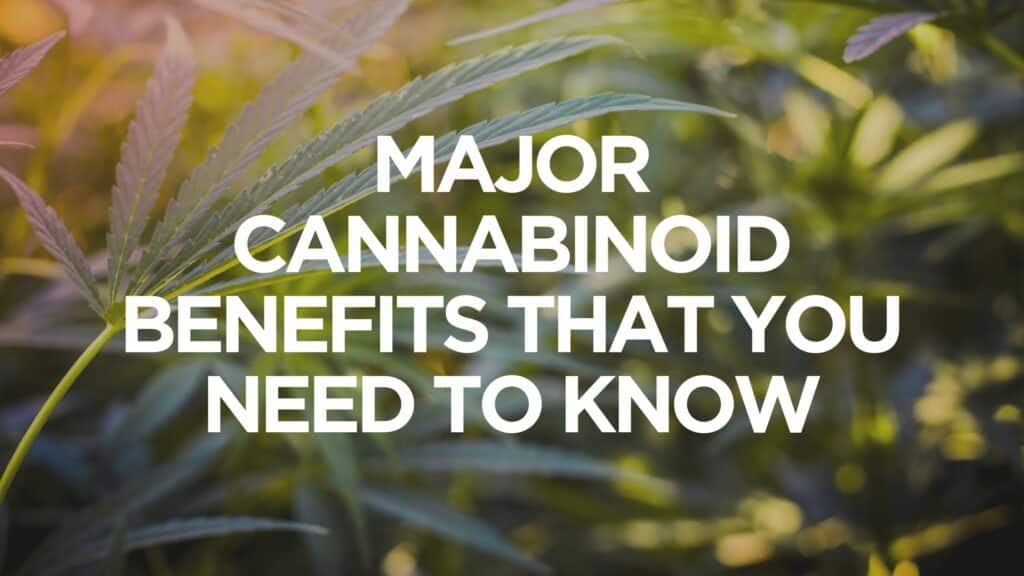Cannabis Category
Major Cannabinoid Benefits That You Need to Know
Cannabinoids are chemicals from the Cannabis plant, where hemp and medical marijuana come from. Scientists have found at least 113 different chemicals in the plant. Some are widely used to treat pain and various other conditions and symptoms.
In this blog, we’ll talk about some of the most common cannabinoids and their effects. We will also list down the best cannabinoid products you can buy right now online.
What Are Cannabinoids?
Cannabinoids are chemicals that come from the cannabis plant. They work with your body’s endocannabinoid system, which controls many physical and mental functions. Different parts of the body are affected by each of these chemicals.
Cannabinoids and cannabinoid receptors work together to control many things in the body. They control how we feel inflammation and pain, as well as our moods and memories. They are also believed to treat or alleviate symptoms of a wide range of illnesses.
Phytocannabinoids and endocannabinoids are the two key types of cannabinoids. The former means “relating to plants,” while the latter means the interior of an organism. In other words, phytocannabinoids can be found in nature or plants, while endocannabinoids are produced by our bodies.
Each cannabinoid has its unique effects. Some of these will be tackled in this article. Check out the most popular cannabinoids below and their benefits and effects.
THC
One of the most well-known phytocannabinoids is tetrahydrocannabinol (THC). It is the part of cannabis that makes you feel high and is often used to treat pain and diseases. The cannabis plant has a lot of different cannabinoids, but none affect the brain as much as THC.
CBD
Unlike THC, cannabidiol (CBD) does not make you high. It is often used to treat epilepsy and other nervous system disorders. Although CBD won’t get you high, it has been shown to help with several health problems.
CBG
Cannabigerol (CBG) is a minor cannabinoid with tremendous potential to gain attention. It was discovered in 1992 by studying how cannabis’ active components affect the body. CBG is the parent molecule of THC and CBD. Later you will find out about CBG’s unique and potential health benefits.
CBN
Cannabinol (CBN) is a new cannabinoid that has not been studied much yet. It is different because it is the only cannabinoid known to get you high besides THC. If these effects happen, they are so small that you might not notice them. It can, however, make the THC high a bit stronger.
What Are the Medical Benefits of Cannabinoids?
People have used medical cannabis as medicine as early as thousands of years ago. Several old texts praised the plant’s ability to cure illnesses, which led to the creation of many cannabis-derived medicines. Cannabinoids change several functions inside the body, including appetite, energy, metabolism, and blood sugar.
Let’s talk about the benefits of the popular cannabinoids that are often used to make therapeutic medicines below:
5 Major Health Benefits of THC
THC is a type of cannabinoid that can get you high and makes you feel calm. THC-rich products can be a healthy supplement when taken in the proper dose. Check out its top health advantages below:
Relieves pain
Many people with chronic pain often have neuropathic pain. The cannabis component, THC, blocks pain signals from reaching the brain, helping relieve pain.
A 2013 FDA-approved trial validated THC’s pain-relieving effects. Neuropathy patients were given vaporized cannabis with 1.29% THC. Outcomes? Delta 9 THC reduced pain by 30% compared to placebo.
Alleviates nausea and vomiting
Since the 1980s, Marinol has treated cancer patients’ nausea and vomiting. Marinol contains synthetic and isolated Delta 9 THC. A study found that oral doses of Delta 8 THC, a cannabinoid like THC but with fewer psychoactive effects, helped children with chemotherapy-induced nausea.
Protects brain cells
THC is neuroprotective, unlike most medications. Psychoactive substances may protect and grow brain cells. THC activates our CB1 receptor, which boosts the brain’s learning ability when stimulated.
A 2014 study indicated that THC patients were 80% less likely to die from severe head traumas. THC may also protect spatial memories. Small amounts of it may even treat or slow Alzheimer’s.
Relieves symptoms of PTSD
Post-traumatic stress disorder (PTSD) can include agitation, anxiety, depression, insomnia, nightmares, and social isolation. THC is an effective PTSD treatment. It reduces the severity of the symptoms and helps patients sleep peacefully to rehabilitate and regain stability.
Boosts appetite
HIV, eating problems, hepatitis, and dementia cause appetite loss. THC stimulates hunger by interacting with hypothalamic receptors that release the hunger hormone ghrelin.
5 Major Benefits of CBD
There are a plethora of health benefits linked with CBD. Most of it is connected to its ability to reduce pain and improve cardiovascular health. However, there are a host of other significant benefits that this cannabinoid can provide. Take a look at them below:
Reduces symptoms of depression and anxiety disorders
CBD’s calming effect is why it is so widely used. A 2017 Brazilian Journal of Psychiatry study examined 57 men’s fear of public speaking. Others received 150, 300, or 600 mg of CBD before their talks. Those who received 300mg of CBD experienced lower anxiety than those who received the placebo.
One study in mice found CBD had antidepressant-like effects. Human trials are needed to confirm whether CBD has the same antidepressant effect.
May treat opioid addiction
Animal and human studies suggest CBD could help cure opioid addicts. One trial gave CBD to heroin addicts. CBD reduced heroin addicts’ withdrawal anxiety and salivary cortisol levels. There were no significant side effects.
CBD reduces anxiety, sleeplessness, and pain in people with substance use disorders, suggesting it may be a valuable treatment for opiate addiction.
Eases Pain
CBD is beneficial in treating chronic pain. In a 2020 study, CBD was applied topically to patients with symptomatic peripheral neuropathy (brain nerve and spinal cord nerve injury), while another group received a placebo. Topical CBD reduced severe aches and chilly, itching sensations compared to placebo. No side effects were noted.
May treat ALS
Amyotrophic lateral sclerosis (ALS) destroys brain and spinal cord nerve cells, causing progressive muscle weakness. ALS patients may benefit from THC and CBD entourage effects, like PTSD patients. In a 2019 study, patients got THC and CBD according to their requirements and preferences. Those with mild, moderate, or severe spasticity owing to ALS were satisfied with the treatment.
Reduce diabetes complications
CBD reduces the impact of excessive glucose levels on human cells, which can lead to diabetes and problems. It may also help manage insulin-related hormone levels, making it a natural diabetic treatment. With more research, CBD could help people with diabetes and those with arterial plaque.
5 Major Benefits of CBG
There are now several cannabis studies focused on CBG that are still in their early stages. Below are the potential benefits of CBG to your body.
Helps you focus
CBG users report alertness or focus because of the substance’s neuroprotective properties. CBG supports good inflammatory function and may enhance neurogenesis and the growth of new brain cells. This, in turn, improves focus and attention.
Supports a healthy appetite
Most recreational marijuana, which contains THC, is comedically linked to munchies. CBG stimulates hunger like THC. Inducing appetite can help some people eat enough. In research conducted with rats, CBG increased hunger without harmful side effects.
Improves eye health
Eye tissues include several cannabinoid receptors. Thus, the endocannabinoid system may support eye health. High eye pressure can reduce blood flow to the optic nerves, impairing vision. CBG may help manage intraocular eye pressure.
In a study with animals, researchers found that CBG might be able to help treat glaucoma. When researchers gave CBG to cats with glaucoma, eye pressure went down, and aqueous humor outflow went up. Aqueous humor is a fluid made by the eye that keeps eye pressure steady.
Prevents the growth of cancer cells
In a study done in 2014, researchers watched how CBG affected rats with colon cancer. They saw that CBG blocked the receptors that cause cancer cells to grow and stopped the growth of colorectal cancer cells. They said that CBG could be used to treat and prevent colon cancer and should be looked into.
Kills bacteria
A 2020 study on how cannabis plants could be used as an antibiotic found that CBG can kill bacteria. Especially against strains of Staphylococcus aureus (MRSA) that are resistant to methicillin. MRSA is a drug-resistant bacteria that causes staph infections.
5 Major Benefits of CBN
The research on how CBN can help people is still in its early stages. Here are some ways that CBN may help with health and disease treatment and prevention, according to early scientific research:
Aids sleep
There are signs that CBN is a potent sleep aid. Studies with mice have shown that CBN can make you sleep longer. Some research indicates that THC makes the calming effects of CBN even stronger. At this point, though, there isn’t enough scientific research on how CBN makes people sleep.
Treats pain
Researchers have found that CBN has pain-relieving effects on the body. The substance seems to change the way neurons that respond to capsaicin work. These nerves that respond to capsaicin are essential for how the body signals and feels pain.
Kills germs
Researchers have found that CBN can kill bacteria. In 2008, researchers found that CBN and CBD, and other cannabinoids can help treat MRSA, a bacterial infection that antibiotics don’t work on.
Treats inflammation
Like CBD, CBN seems to be able to reduce inflammation. Scientists are trying to learn more about how the endocannabinoid system affects the immune system. Cannabinoids, such as CBN, are being looked at to see if they could be used to treat inflammatory diseases.
Helps stop seizures
CBN as an anticonvulsant. Because CBD is so good at helping seizure disorders, it could be used to treat epilepsy, one of the most promising medical uses for this cannabinoid. Even though CBN seems to be less potent than CBD and THC, it has also been shown to stop seizures.
Cannabinoids: What to Look for?
When you want to buy cannabinoids, you should find a reliable source. Make sure the company you are buying from has a good reputation. It is also vital to ensure the products they sell are high quality and have been tested for purity.
So, how do you know if you should try one of the products you’ve found? We have listed some of the lab-tested and reliable cannabinoid products you can find online:
Delta 8 products: Delta 8 THC is one of the many cannabinoids that occur naturally in cannabis plants. It only occurs naturally in small amounts, often made as a distillate. To do this, the plant has to undergo a process with several steps, such as extraction, winterization, and decarboxylation.
Delta 8 extract cartridges and syringes can be vaporized with a regular weed pen or dab rig. Since distillate is technically edible, it can be taken by mouth. There are now also Delta 8 tinctures and Delta 8 gummies.
Delta 9 products: Delta 9 is found in the cannabis plant in much higher amounts than its cousins, Delta 8 and Delta 10. This means that Delta 9 THC can be naturally extracted through a simple process to make a product with long-lasting effects.
Since Delta 9 THC is in its most natural form, products made with it tend to be less processed and have fewer added ingredients. With up to 10 mg of THC, these products can make a “high potency full spectrum formula,” which makes the experience more complete and enjoyable.
CBD products: Cannabidiol is one of the most well-known substances that come from the cannabis plant. Unlike THC, CBD won’t get you high, but it does change your consciousness. You might feel calmer, have less pain, and be more at ease. A small amount of THC is also found in some CBD products.
Most of the time, a small amount of THC in a CBD product isn’t a problem. But larger amounts could make you feel “high.” CBD is best taken by mouth as a tablet, edible, or tincture.
HHC products: Hexahydrocannabinol (HHC) is a fully legal cannabinoid from hemp and can be found in small amounts in cannabis leaves and flowers. After the plant has grown and matured for a few months in the hot summer sun, many cannabinoids start to break down, with some becoming CBN and others becoming HHC.
HHC can be used in several ways, like tinctures and edibles. It is the most stable cannabinoid that can be made with the same effects as its close relatives, Delta 8 and Delta 9.
Cannabis-derived Compounds or Cannabinoids FAQs
What do cannabinoids do for the body?
Cannabinoids, much like opioids, produce their effects by engaging with specific receptors found in various regions of the central nervous system. This process is similar to how opioids work. However, cannabinoids, to put it more simply, control how cells communicate, including how they send, receive, and process messages.
What are the side effects of cannabinoids?
Cannabinoids are now being utilized in various ways, including relief from pain and inflammation, particularly in chronic forms caused by conditions such as arthritis, fibromyalgia, endometriosis, glaucoma, neuropathy, and Crohn’s disease. However, some cannabinoids may cause euphoria, difficulty concentrating, and loss of memory. These effects may stay for an extended period even if you no longer use the substance.
Is CBD the same as cannabinoids?
Cannabidiol (CBD) is a cannabis compound found in the cannabis Sativa plant. Cannabinoids refer to over 80 different chemical compounds discovered in the cannabis plant. CBD is just one of these cannabis compounds, referred to as cannabinoids. In other words, CBD is a type of cannabinoid.
Is cannabinoid a drug?
The cannabis plant contains compounds called cannabinoids, including THC and CBD. Under the current interpretation of federal law, CBD is still classified as a drug that falls under Schedule I. However, hemp has been removed from the Controlled Substances Act. Nevertheless, since CBD does not produce intoxication effects and is not classified as a regulated or prohibited substance, it is not screened for in drug tests.
Conclusion
There are many cannabinoids in the cannabis plant. The most popular ones are THC, CBD, CBG, and CBN. However, there is still a plethora of other cannabis cannabinoids that scientists haven’t done extensive research on yet.
The benefits and side effects will differ for each person based on their weight, lifestyle, health conditions, and other factors. To keep things simple: THC and CBD are still the most commonly used drugs. In the long run, we hope the many preliminary studies will lead to more definitive research on the human body.
Make sure to talk to your doctor or wellness professionals before using any product to avoid severe forms of adverse effects like drug abuse, psychotic disorders, neurological disorders, and withdrawal symptoms. This will also ensure that you use the product based on the state medical cannabis laws.
Check Out the Best Products at Harbor City Hemp
Take a look at the various cannabis-derived products we offer here at Harbor City Hemp. Enjoy the potential benefits from the mentioned cannabinoids above for a lower price by registering for our discount program!




